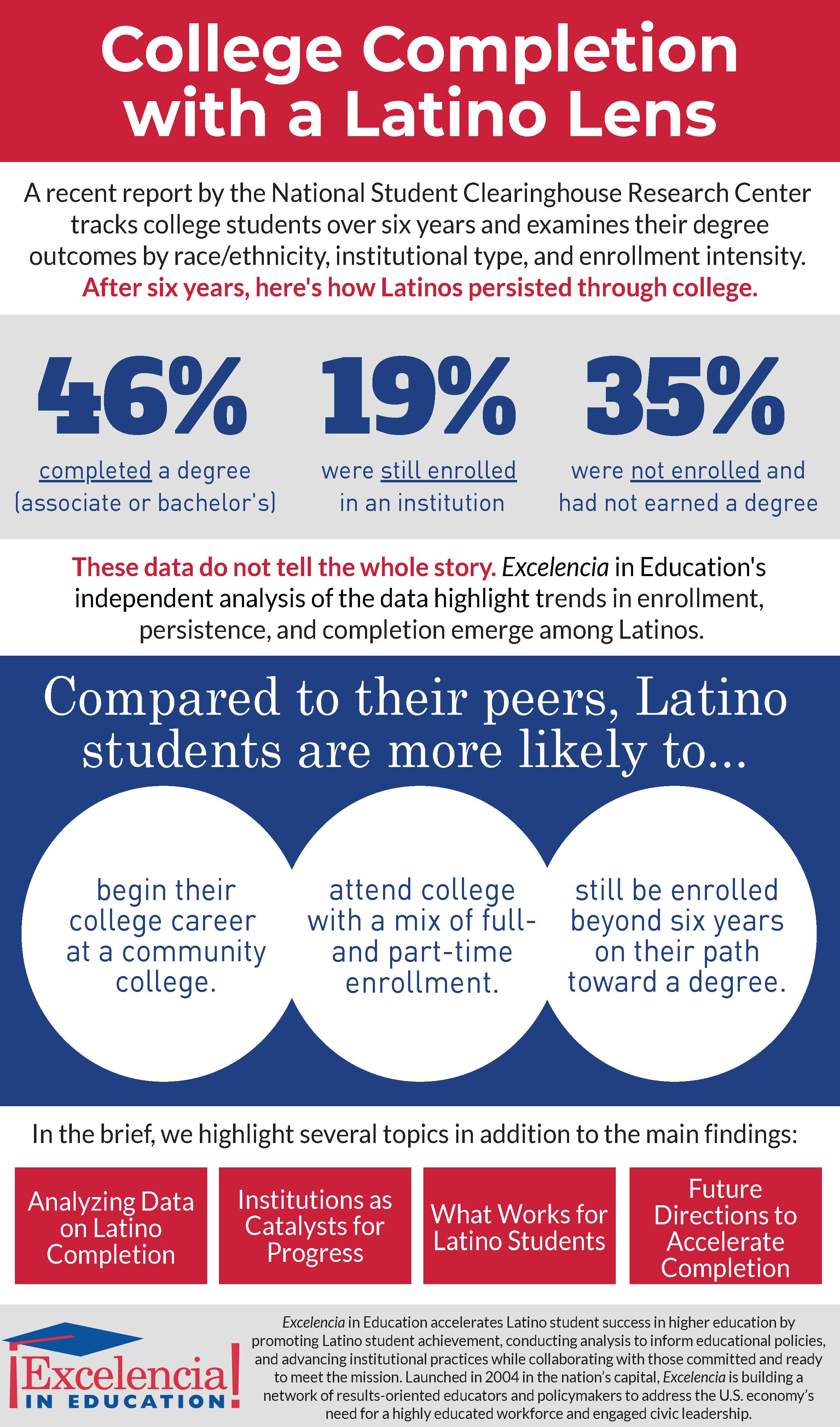
Share On Social!
Latino college students are far less likely than their white peers to complete their degree, and more likely to still be enrolled beyond six years on their path to a degree, according to a new report.
The report, College Completion through a Latino Lens, is from Excelencia in Education. They examined the Latino-focused findings from an analysis of college completion rates by race/ethnicity from a 2010 student cohort, which was led by the National Student Clearinghouse Research Center.
Key points from the Excelencia in Education report show:
About 45.8% of Latino students earned a 2- or 4-year degree within six years. This is a lower completion rate than their White peers (62%) and higher than their Black peers (38%).
One in every five Latino students were still “in progress” of earning a degree after six years (19%). This is higher than their Black (17%), Asian (17%), and White (11%) peers.
 Most Latinos attend college with a mix of part- and full-time enrollment (63%). Only 28% were exclusively full-time students. About 9% were exclusively part-time students.
Most Latinos attend college with a mix of part- and full-time enrollment (63%). Only 28% were exclusively full-time students. About 9% were exclusively part-time students.
The number of Latino college students is rising. Latinos will comprise one-fifth of all college students by 2025. One reason is that 86% of Latino parents with children younger than 18 say it is either extremely or very important that their children earn a college degree, according to Pew Research Center. Only 67% of white parents say the same.
Given their rise, Latino students warrant the attention of institutional leaders and policymakers.
The Excelencia in Education report makes these recommendations:
- Track data that show institutional commitment with key metrics, such as enrollment/retention of Latino students, financial support, and faculty diversity.
- Intentionally implement and advance evidenced-based practices and policies to support Latino student success.
- Demonstrate leadership impact. This includes the quality and execution of a strategic plan and the guidance by president and board. It also includes evaluating how institutions align data and practice with leadership.
Excelencia in Education keeps a “what works” database of model programs in these three areas.
They also list Éxito! Latino Cancer Research Leadership Training, led by Salud America! director Dr. Amelie G. Ramirez of UT Health San Antonio, as a program to watch. Éxito! recruits 25 Latino students and health professionals annually for a culturally tailored curriculum to promote pursuit of a doctoral degree and cancer research career.
“Institutions of higher education have an opportunity to combine data, practice, and leadership to accelerate Latino student success,” according to the report. “When institutions take strategic action in these three core areas, they ensure that Latino students graduate college and become agents of change for their communities and for the nation.”
Colleges can go beyond education, too.
Regis University in Colorado used a grant to work with local developers to collectively impact health by building places, social connectivity, physical activities, improve access to food and health care.
By The Numbers
84
percent
of Latino parents support public funding for afterschool programs



